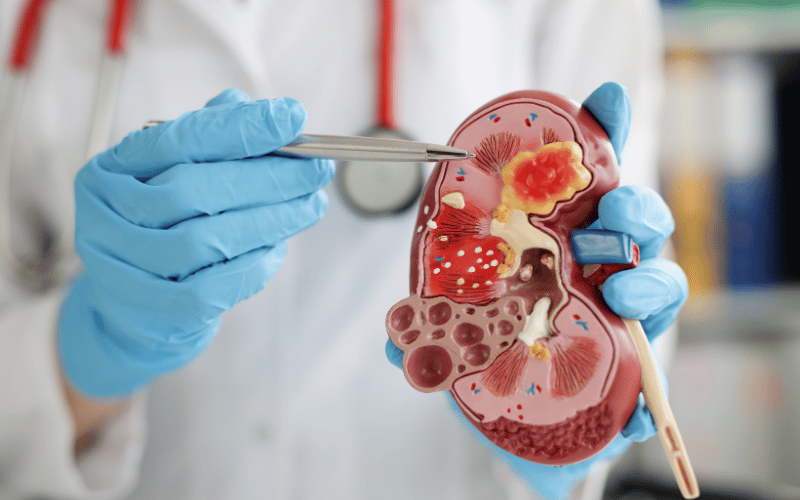Variety 3: Struvite Stones

Understanding Struvite Stones and Their Connection to Infections
Struvite stones are another variety of kidney stones that can affect people. They are composed of magnesium, ammonium, and phosphate and are typically associated with urinary tract infections (UTIs). Struvite stones can grow rapidly and become quite large, sometimes causing severe pain and complications.
Women are more prone to UTIs than men due to their anatomy, which increases their risk of developing struvite stones. Additionally, certain medical conditions, such as diabetes or a weakened immune system, can make women more susceptible to UTIs and, consequently, struvite stones.
Preventing struvite stones primarily involves addressing the underlying cause: UTIs. To reduce the risk of UTIs and the subsequent development of struvite stones, it’s essential to maintain proper hygiene, drink plenty of water, and promptly seek medical attention if a UTI is suspected. Timely treatment of UTIs can help prevent the formation of struvite stones.
It’s also crucial to monitor your intake of magnesium and phosphate, as excessive amounts can contribute to the development of these stones. Consult your healthcare provider for guidance on maintaining a balanced diet that supports kidney health. (3)